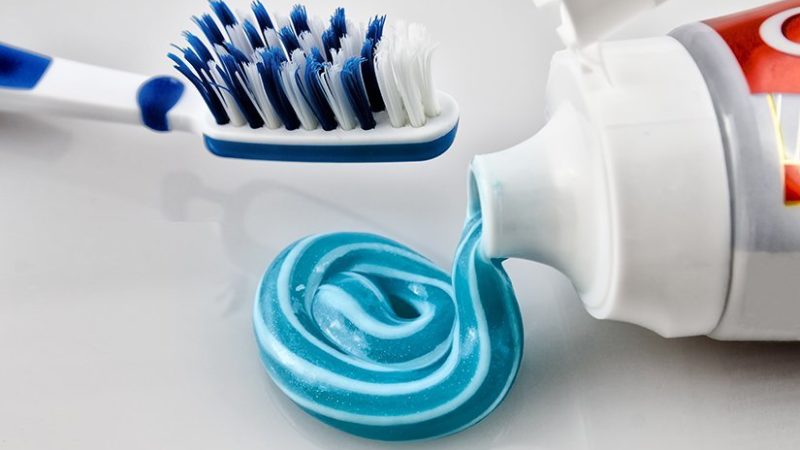Disadvantages of Toothpaste: Toothpaste is a paste that is applied with a toothbrush for teeth cleaning. Generally, toothpaste contains a variety of ingredients like sodium lauryl sulphate and fluoride that can significantly whiten teeth, reduce plaque formation, and manage gingivitis. There is numerous toothpaste available on the market, including whitening toothpaste, sensitivity toothpaste, fluoride toothpaste, and others. Using a particular toothpaste may irritate and inflame the mouth and also has numerous other disadvantages.

Let’s have look at the disadvantages/cons of using Toothpaste:
1. Disadvantages of whitening toothpaste
Whitening toothpaste doesn’t really make your teeth whiter, they have an abrasive that helps whiten teeth by removing stains from the enamel. When you use toothpaste that contains hydrogen peroxide for whitening tends to spread throughout your mouth, including your gums, and you wind up swallowing some of the hydrogen peroxides.
2. Disadvantages of Fluoride toothpaste
Although fluoride toothpaste has higher concentrations and the chemical is present in the smallest amounts, due to the increased risk of ingesting fluoride, fluoride toothpaste is generally harmful to children below the age of six.
3. Disadvantages of Using Sensitivity Toothpaste
People who experience a sensitivity issue may fail to recognise the underlying factors, such as cavities, gum disease, or decay, that may increase their sensitivity issue by using such toothpaste for a long time.
Also Read: Side effects of drinking too much coffee daily
4. Disadvantages of Flavoured Toothpaste
You may enjoy the taste of toothpaste with flavoured, such as curry, bacon, or salt, but they definitely won’t help keep your breath fresh as mint toothpaste would. Flavoured toothpaste does not prevent plaque from forming. Following a tooth brushing, food tastes awful.
5. Disadvantages of Herbal Toothpaste
Your teeth may also be at risk if you use uncertified organic herbal toothpaste, and toothpaste with cinnamon, artificial dyes, and other harmful ingredients is not beneficial for you.
6. Disadvantages of Charcoal Toothpaste
Due to its well-known abrasive qualities, charcoal toothpaste poses a threat to the enamel, the outermost layer of the tooth. The extremely abrasive nature of this toothpaste removes the enamel, exposing the dentin, which can lead to dental issues like tooth sensitivity. Charcoal can also gradually settle in between the gums, leading to other complications like inflammation and pain in the gums.
7. Disadvantages of Antimicrobial Toothpaste
Antimicrobial A chemical called triclosan is commonly used in toothpaste formulations to protect teeth. This substance has proven effective in lowering the risk of plaque accumulation, gingivitis, and tooth decay. However, triclosan, an antibacterial substance has been linked to many health issues, including dermatitis, or skin irritation, and an increase in allergic reactions, particularly in children.
8. Disadvantages of Children’s Toothpaste
Children’s toothpaste contains relatively little amounts of fluoride. However, your child may develop stomach issues if they repeatedly consume a lot of toothpaste. Additionally, fluoride can also weaken tooth enamel and cause dental fluorosis, which tarnishes the colour of a child’s teeth
Conclusion: After reading the above negative effects of using toothpaste, you might be wondering what toothpaste is best to use regularly for teeth. Fluoride toothpaste is generally safe and advised for both children and adults, but it’s necessary to use it appropriately for everyone.
